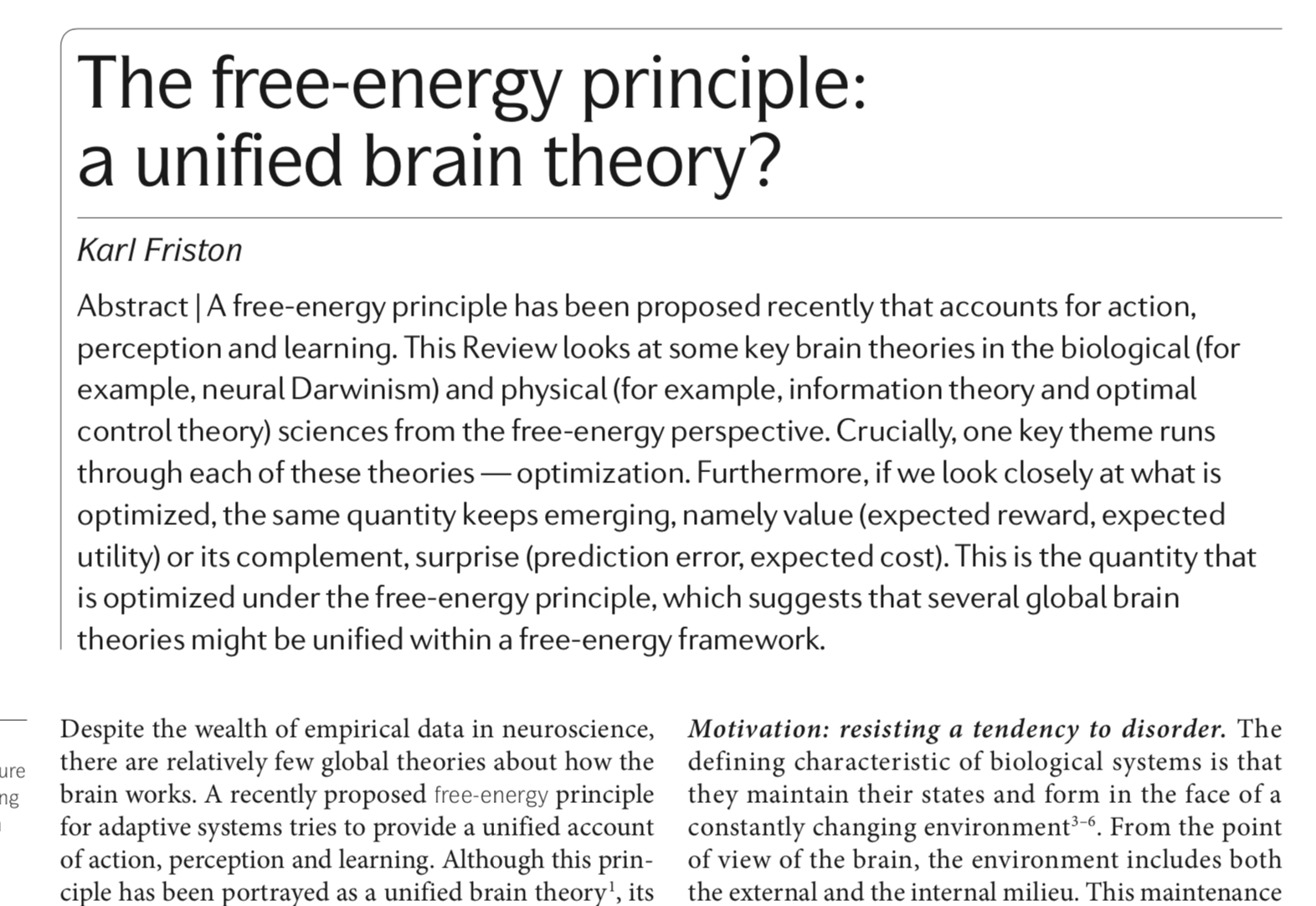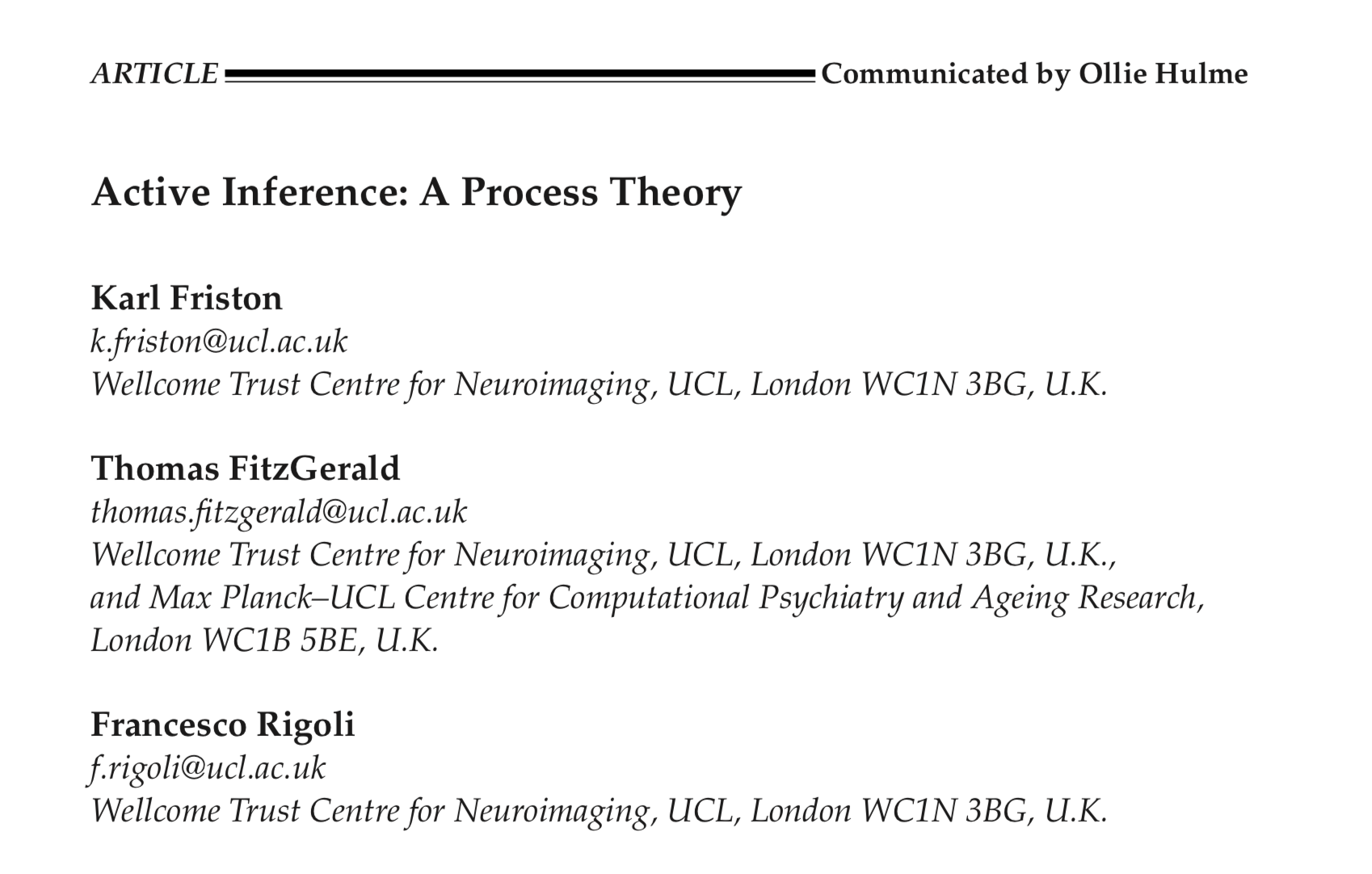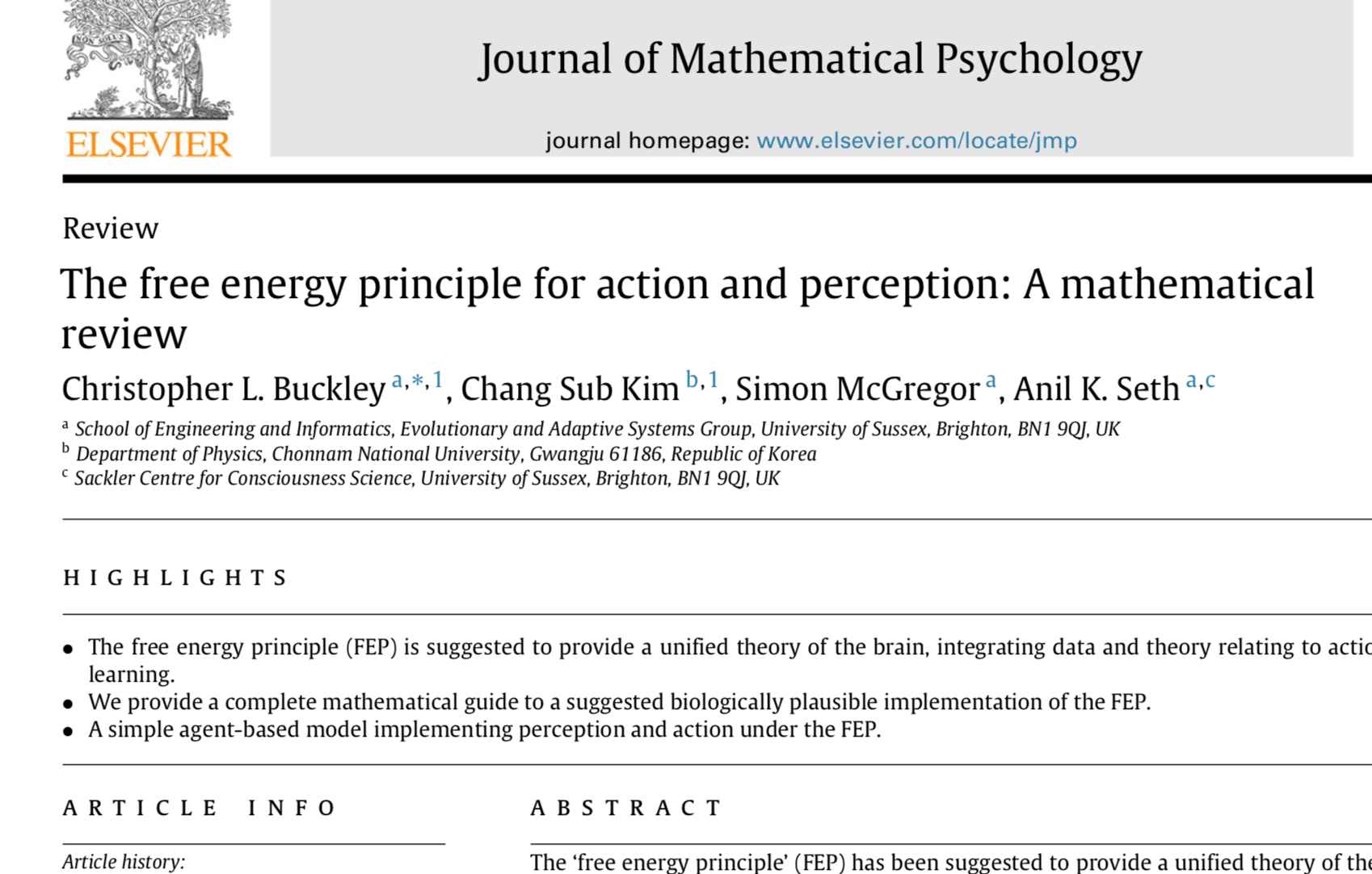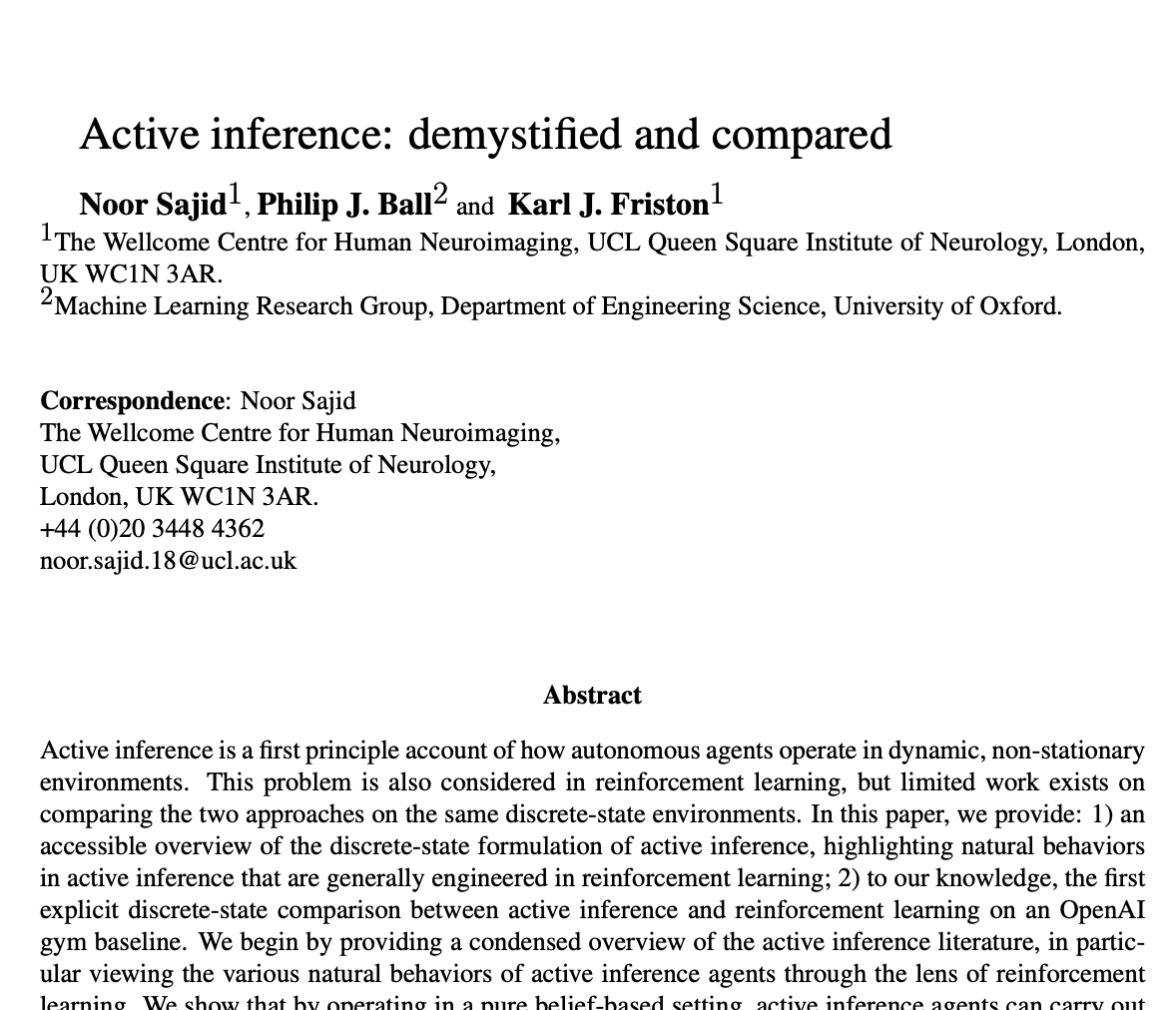free energy principle
Originally introduced by Karl Friston, it postulates that dynamic, fluctuating systems minimise a free energy functional of their internal states, which entail beliefs about hidden states in their environment [wiki].

Originally introduced by Karl Friston, it postulates that dynamic, fluctuating systems minimise a free energy functional of their internal states, which entail beliefs about hidden states in their environment [wiki].

A series of recommended papers for getting a rounded overview of the free energy principle and active inference:

Friston, Karl. "The free-energy principle: a unified brain theory?." Nature reviews neuroscience 11.2 (2010): 127.
Conceptual introduction to the free energy principle.

Friston, Karl. "A free energy principle for a particular physics." arXiv preprint arXiv:1906.10184 (2019).
A physics treatment of the free energy principle; accompanying slides by Thomas Parr.

Friston, Karl, et al. "Active inference: a process theory." Neural computation 29.1 (2017): 1-49.
Detailed overview of active inference process theory and neurobiological correlates of discrete state space models; accompanying slides by David Quiroga.

Friston, Karl J., et al. "Deep temporal models and active inference." Neuroscience & Biobehavioral Reviews 90 (2018): 486-501.
Hierarchical models at different timescales.

Friston, Karl J., Thomas Parr, and Bert de Vries. "The graphical brain: belief propagation and active inference." Network Neuroscience 1.4 (2017): 381-414.
Detailed overview of mixed modes; accompanying slides by Lancelot Dacosta.

Buckley, Christopher L., et al. "The free energy principle for action and perception: A mathematical review." Journal of Mathematical Psychology 81 (2017): 55-79.
Mathematical review of the free energy principle.

Bogacz, Rafal. "A tutorial on the free-energy framework for modelling perception and learning." Journal of mathematical psychology 76 (2017): 198-211.
Tutorial paper on the elementary preliminaries for continuous state-space models.

Ramstead, M.J.D., Badcock, P.B. and Friston, K.J., 2018. Answering Schrödinger's question: A free-energy formulation. Physics of life reviews, 24, pp.1-16.
Paper proposing a multiscale formulation of the free energy principle.

Schwartenbeck, P. and Friston, K., 2016. Computational phenotyping in psychiatry: a worked example. eneuro, 3(4).
For understanding how to implement the framework (specifically the inversion).

Da Costa, Parr et al. 2020. Active inference on discrete state-spaces: a synthesis. arXiv.
Self-contained overview of active inference

Sajid, Ball, et al. 2019. Active inference: demystified and compared. arXiv.
For a simplified perspective and discrete case comparison with reinforcement learning.
Additional resources:
🧠 Karl's website
🧠 Introductory tutorial on Active Inference by Oleg Solopchuk
Collection of talks on free energy principle and active inference by Karl and colleagues.